|
Scripture Readings: Exodus 34:29–35 | Psalm 99 | 2 Corinthians 3:12–4:2 | Luke 9:28–43
“Now the Lord is the Spirit, and where the Spirit of the Lord is, there is freedom. And all of us, with unveiled faces, seeing the glory of the Lord as though reflected in a mirror, are being transformed into the same image from one degree of glory to another; for this comes from the Lord, the Spirit.” (2 Corinthians 3:35-36) After months of tension, speculation, and many worrying signs, this week the Russian government fully unveiled it’s willingness to shatter European peace and invade the Ukraine. Like many around the world, this news has left me rather shocked, unsure of how to process this new reality. As events continue to unfold, we don’t yet know where this will all lead, but we do know that life has changed, and that the days ahead won’t be easy… especially for those in Ukraine right now who are fighting to defend their homes, fleeing to find a safe-haven, and facing the loss of their people’s freedom. Today we in the Church celebrate Transfiguration Sunday: when Jesus Christ is revealed in glory to Peter, James, and John, giving them a glimpse, not only of His divine identity as the Chosen Son of God, but also a glimpse of what this Son has come to do… His mission of freedom. Not the kind of freedom we often think of and hear about these days: the so-called freedom to say and do whatever we want, regardless of the consequences for ourselves or those around us. No, today we celebrate the unveiling of the kind of freedom the Living God Himself is bringing about through Jesus Christ our Lord. But before we turn to our passage from the Gospel of Luke, let’s take some time to reflect on our first reading from Exodus. This strange passage takes place at a pivotal moment in Israel’s story: not long before the Living God had dramatically rescued their people from slavery in Egypt, setting them free to follow Him and share in His holy love. God had chosen Moses to lead this people, and to teach them what it means to live as His holy people, set aside to reflect God’s goodness in their whole lives. Yet at the very moment at Mount Sinai when Israel was agreeing to faithfully follow God’s ways, they broke them instead: bowing down to worship an idol… a god of their own designs. At this crisis moment, God’s just about ready to write off His faithless people, but still the LORD makes room for Moses to intercede… to pray for Israel to be spared. God then listens to Moses’ prayer, and in Exodus 34:5-7 the LORD dramatically reveals Himself to His faithful servant: “The Lord descended in the cloud and stood with him there, and proclaimed the name, “The Lord.” The Lord passed before him, and proclaimed, “The Lord, the Lord, a God merciful and gracious, slow to anger, and abounding in steadfast love and faithfulness, keeping steadfast love for the thousandth generation, forgiving iniquity and transgression and sin, yet by no means clearing the guilty, but visiting the iniquity of the parents upon the children and the children’s children, to the third and the fourth generation.” It is after this close encounter with the Living God Himself, that we are told Moses’ face begins to shine; reflecting the glory of the Living God like the moon reflects the light of the sun. In that moment when Israel’s unfaithfulness almost cost them everything, and Moses prayed for them to be saved, he ended up as close as it gets to sharing in the holy life of the LORD… transforming him in ways that others could not help but notice. In fact, it frightened them. So much so that Moses would end up having to wear a veil to conceal the glory of God that was shining from his face. This story sheds some important light on what life with God will mean for us all: Drawing near to God does things to us. It will transform us… in ways that others will notice, and not always find easy to handle. But more importantly, this story shows us that we humans are meant to reflect not just the glory of God, but His life, His character as well. God shared Himself with Moses so Israel could share in God’s life too. So that they could come to know the Holy One who set them free. And who would one day reveal Himself to the world once and for all. Turning now to the Gospel of Luke and the story of the Transfiguration, we hear how Christ’s glory is suddenly revealed to three of His followers. Like Moses, Jesus had ascended a mountain to meet with the Living God, but as He prays Jesus is transformed, transfigured, in a different way: if Moses was like the moon, his face reflecting the glory of God, Jesus was more like the sun, acting as the source of the dazzling light. What’s more, Moses himself shows up, along with the prophet Elijah… two heroes from Israel’s ancient past who had both encountered the LORD alone atop a sacred mountain. We’re told they were speaking to Jesus about His departure… literally, his exodus… evoking that world-changing moment in Israel’s history when they were first rescued from slavery in Egypt, and set free to be God’s faithful children. Clearly, St. Luke is wanting us to start connecting the dots between what the Living God had done in the past, and what Jesus had now come to do. This One who completely shared in God’s glory was here to bring God’s freedom again… to bring about God’s great rescue mission that we know would lead to the cross. As is often the case in the Gospels, the disciples don’t have a clue what to do. Peter blurts out something about making three tents, one for Christ and His two ancient guests, unwittingly making the three of them out to be equally honoured. Then suddenly, a voice from heaven singles out Jesus above Moses and Elijah: “This is my Son, my Chosen;” the holy voice says, “listen to him!” When the voice had spoken, Jesus was found alone.” (Luke 9:35-36). At the centre of the story of the Transfiguration of Jesus is the conviction that in Christ, God is revealing Himself, His heart, His plans and intentions for the world once and for all. Jesus has come as God’s Chosen One to bring about God’s freedom to those in bondage to sin, despair, death, and the spiritual forces of darkness… so that we may share in the holy, life-giving love of the LORD. And more than that, so that we too might be transformed and reflect that holy love for all to share. After all, the whole point of the vision of Jesus revealed in heavenly glory is not so that we can just gaze at Him in awe and remain unchanged, but so that we will listen to Him! So that we will place our faith in Him as God’s Son, His Chosen One. So that Christ’s words will begin to transfigure our whole lives. This is part of what St. Paul is talking about in our reading from 2nd Corinthians 3:17-18, as he reflected on the story of Moses having to veil his shining face, and how Christians, illumined by faith in Jesus, are set free to share God’s light with the world: “Now the Lord is the Spirit, and where the Spirit of the Lord is, there is freedom. And all of us, with unveiled faces, seeing the glory of the Lord as though reflected in a mirror, are being transformed into the same image from one degree of glory to another; for this comes from the Lord, the Spirit.” Our lives, set free by the holy love of God revealed in Jesus Christ, are being transformed by God’s Holy Spirit… changed for good more and more into the image of Christ. Like Israel, we have been set free for a purpose: to be shaped by God’s own character. “Merciful and gracious, slow to anger, and abounding in steadfast love and faithfulness, keeping steadfast love… forgiving iniquity and transgression and sin.” This is what God’s freedom looks like. The freedom from bitterness, envy, violence, and greed. Freedom from the fears and twisted desires that tears people and even whole nations apart. Freedom from the self-centredness that’s the sources of all sorts of destruction. Freedom to be led by the love of God, and to love our neighbours… and even our enemies. This message is much more than beautiful sounding words… it is God’s Good News, meant for the messiness of life… meant to bring God’s mercy, and freedom to those who are still bound by darkness and despair. Right after the vision and heavenly voice, Christ and His disciples come down from the mountaintop where they find a father desperately pleading for his only son, who was suffering gravely under destructive demonic control. The other disciples had been unable to do anything to help the boy. Overwhelmed and confused, all turn their eyes to see if Jesus can help. Luke tells us that “Jesus rebuked the unclean spirit, healed the boy, and gave him back to his father. And all were astounded at the greatness of God.” (Luke 6:42-43). In 1 John 3:8 we’re told that “The Son of God was revealed for this purpose, to destroy the works of the devil.” To undo all of the chaos and havoc caused by the forces of darkness at work in the world, and in our hearts. To set us free, transforming us each day by His Spirit of holy love. In Jesus Christ God has made known His heart, and His saving love for our world. And He has given us His Spirit to set us free to share this life-changing love. How has Jesus already revealed God’s glory and saving love in our lives? How has He already been at work bringing God’s freedom where we need it most? How might Christ be calling us today to reflect His holy love in our lives? To make known God’s mercy, even in the messiness of life? As we seek God’s freedom for ourselves and our world, let us listen faithfully to Jesus, our Risen Saviour, and place our trust in the rescuing love of God that He has revealed. Amen.
0 Comments
Our service of Morning Prayer, Bulletin, and Sermon this week can be found here: And our Songs this week can be found here: Scripture Readings: Genesis 45:3–11, 15 | Psalm 37:1–11, 39–40 | 1 Corinthians 15:35–38, 42–50 | Luke 6:27–38
“So it is with the resurrection of the dead. What is sown is perishable, what is raised is imperishable. It is sown in dishonor, it is raised in glory. It is sown in weakness, it is raised in power. It is sown a physical body, it is raised a spiritual body. If there is a physical body, there is also a spiritual body.” (1 Corinthians 15:42-44) The story of Joseph we heard a bit of this morning is one of the most dramatic reversals in all of Scripture. Sold as a slave by his jealous brothers, Joseph faced years of misery: at first he did well as a slave, gaining respect and honour from his master, only to be falsely accused and thrown into prison. Years pass with him waiting, as good as dead, and then through a miraculous twist, Joseph is set free and raised up to the right hand of Pharaoh in Egypt. It is not the story of someone overcoming life’s obstacles alone. No, it is a story revealing what the Living God is up to even in the midst of human betrayal, misery, and hopelessness, God is at work raising up the lowly, overturning treachery, bringing about reconciliation, and life to those as good as dead. Today we also heard a bit of St. Paul’s reflection on the resurrection… reminding us that the reality of the new life in Jesus, though it begins with our everyday earthly life, has a very different and glorious destiny. Speaking to some sceptics that deny that the dead will be raised, and who were asking for details about what life will be like after we are raised, St. Paul points us to a seed: it has one form, one shape, which is humble, lowly, seemingly insignificant, but after it has been buried in the soil, it’s time for the new life within it to be revealed. As an acorn grows into an oak, which seem so different to our eyes, God will raise us up to share in His eternal glorious life. We can only imagine now all the details of what God has in store for us, but we do know that it won’t be limited by the shape of the life we have known so far. What’s more, we know we don’t have to wait until we are raised from the dead to share in God’s new life. United to Jesus Christ in the Holy Spirit, the Living God is at work in us even now cultivating His holy love within His children, beginning to bring the life of heaven to birth in us today. This life, though it does not look like life as we know it naturally, is reflected in commands Christ Jesus gave to us in our Gospel passage this morning: not as a list of duties in order to get us into God’s good books, but as the beginnings of God’s heavenly new life taking root and growing. “But I say to you that listen, love your enemies, do good to those who hate you, bless those who curse you, pray for those who abuse you. If anyone strikes you on the cheek, offer the other also; and from anyone who takes away your coat do not withhold even your shirt. Give to everyone who begs from you; and if anyone takes away your goods, do not ask for them again. Do to others as you would have them do to you. “If you love those who love you, what credit is that to you? For even sinners love those who love them. If you do good to those who do good to you, what credit is that to you? For even sinners do the same. If you lend to those from whom you hope to receive, what credit is that to you? Even sinners lend to sinners, to receive as much again. But love your enemies, do good, and lend, expecting nothing in return. Your reward will be great, and you will be children of the Most High; for he is kind to the ungrateful and the wicked. Be merciful, just as your Father is merciful. “Do not judge, and you will not be judged; do not condemn, and you will not be condemned. Forgive, and you will be forgiven; give, and it will be given to you. A good measure, pressed down, shaken together, running over, will be put into your lap; for the measure you give will be the measure you get back.” (Luke 6:27-38) Looking back on his life… on all the sufferings and hardships he endured as the result of his brother’s envy and betrayal, Joseph caught a glimpse of the Living God’s hand at work, transforming even his pain into the soil for new life to blossom and grow: new life for himself, raised to Pharaoh’s right hand… new life for his community, and country… and a new life reconciled to his enemies, who had become his brothers once more. “And now do not be distressed, or angry with yourselves, because you sold me here; [Joseph tells them,] for God sent me before you to preserve life.” (Genesis 45:5) As those who would follow our Saviour, Jesus Christ, who was crucified, died, was buried, and who has been raised to new life, and now sits at the right hand of God the Father to bring God’s new life to the world, let us take heart, trusting that the LORD’s gracious hand is at work in our stories and lives even now, cultivating His heavenly new life of holy love in us through the Holy Spirit. And let us take Christ’s words to heart, as He calls us to nurture this blessed new life by putting it into practice: by loving our enemies; doing to others what we would have them do to us; giving and forgiving; merciful to all… just like our Heavenly Father. Amen. 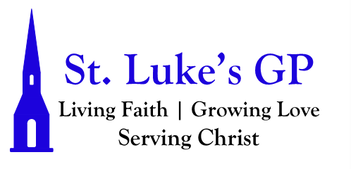 “I appeal to you therefore, brothers and sisters, by the mercies of God, to present your bodies as a living sacrifice, holy and acceptable to God, which is your spiritual worship. Do not be conformed to this world, but be transformed by the renewing of your minds, so that you may discern what is the will of God—what is good and acceptable and perfect. For by the grace given to me I say to everyone among you not to think of yourself more highly than you ought to think, but to think with sober judgment, each according to the measure of faith that God has assigned. For as in one body we have many members, and not all the members have the same function, so we, who are many, are one body in Christ, and individually we are members one of another. We have gifts that differ according to the grace given to us: prophecy, in proportion to faith; ministry, in ministering; the teacher, in teaching; the exhorter, in exhortation; the giver, in generosity; the leader, in diligence; the compassionate, in cheerfulness. Let love be genuine; hate what is evil, hold fast to what is good; love one another with mutual affection; outdo one another in showing honor. Do not lag in zeal, be ardent in spirit, serve the Lord. Rejoice in hope, be patient in suffering, persevere in prayer. Contribute to the needs of the saints; extend hospitality to strangers.” (Romans 12:1-13) This passage of Scripture from St. Paul’s letter to the Christians in Rome has much to say to us today: it reminds us that true worship entails offering up our whole lives to God, living each day devoted to God’s good will, and not simply falling in step with what is happening all around us, or inside of us. It reminds us that as members of the one body of Christ, we all have unique roles to play, and different ways God has empowered us to all to take part. And finally, it reminds us what living God’s way looks like: genuine and mutual love; lifting one another up; rejecting evil; embracing good; serving the Lord eagerly. It looks like joyful hope. Patience in the midst of suffering. Faithfulness in prayer. Caring for and welcoming each other, as well as those who are unknown or different. This vision of the Christian life stands in such contrast to how much of our world is operating today. But as we look back on this past year, and look ahead at what is to come, let us take heart in the knowledge that our Heavenly Father does not neglect or waste what we offer to Him through faith in Jesus Christ. ____________ We have much to rejoice and give thanks for as a Parish in this past year: For several months we were able to worship together in person, including our Christmas Services. We also continued to have the capacity for holding online services, or making use of At-Home worship resources for when we could not gather together. Our Building Restoration Project work is very near to completion (and a word of thanks is due to Terry Sleep for all of his work in this project). We have put on several Take-Out Fundraising Meals, not only to benefit ourselves, but last June we also held one where all the profits were donated to a local school for their Breakfast Program. In October we were privileged to have Archbishop David Edwards and the Primate of the Anglican Church of Canada, Linda Nicholls, join us in person to celebrate the Feast of St. Luke. In all of these activities, initiatives, and occasions, and in countless other acts of kindness and service that are perhaps easier to overlook, we as members of our Parish Family have been involves in various ways, putting our gifts to good use for the glory of God, and to build up one another in love. Looking ahead to the coming year, there are some challenges and tasks before us: The COVID-19 pandemic remains with us, and many of us and our neighbours are continuing to feel its effects: burdened, experiencing loss, isolated, frustrated… afraid. We recognized the need for renewal of our Parish community: building up our connection to one another as brothers and sisters in Jesus Christ. We continued to face pressures meeting the basic financial needs for the Parish, while also having to continue the fundraising efforts for our Building Restoration Project. And following to the call from Archbishop David and our Diocesan Synod, we are to create and implement our own Mission Action Plan, and to engage in the worldwide Anglican Communion’s season of Intentional Discipleship (“to equip and grow disciples who in turn go out to equip and disciple others.”). To help us as a Parish face some of these tasks and challenges, Vestry and I have put forward a Proposal to create a new mission-focused body serving alongside of Vestry. This Proposal is intended to be a one year trial, helping us as a Parish to develop and share in a common understanding of how St. Luke’s can best participate in the Mission of God in our community. As this Proposal involves some changes to the structure of our Parish Vestry, I ask that it be decided upon before our Vestry elections take place. This Proposal has been shared with Parishioners in advance of our Annual Meeting, with opportunities and invitations for discussion, questions, and clarifications having been offered as well. However we prayerfully decide to proceed, it is clear that the Lord has much for His people to do in this community in the days to come. May the Holy Spirit of God continue to guide us and bind us together in the faith, hope, and love that God has given to us all in Jesus Christ. Respectfully submitted, in the love of Christ, Rev. Rob Montgomery Our Annual Meeting is scheduled for today Sunday February 20, immediately after a (shortened) service, in the Parish Hall. You can find Rev. Rob Montgomery's annual Clergy report here: Our service of Morning Prayer, Bulletin, and Sermon this week can be found here: And our Songs this week can be found here:  Scripture Readings: Jeremiah 17:5–10 | Psalm 1 | 1 Corinthians 15:12–20 | Luke 6:17–26 “But in fact Christ has been raised from the dead, the first fruits of those who have died.” (1 Corinthians 15:20). What’s holding us up? There is a game from my childhood that’s still around today called Jenga. It involves building a solid tower out of rectangular wooden blocks, and then taking turns removing them one at a time, and stacking them on top. Bit by bit the tower gets higher, but only at the cost of making the whole tower less stable… less able to stand steady and upright, until eventually somebody pulls out an unlucky piece and the whole thing falls over. It’s a pretty fun game if you have a steady hand, but regardless of how good you get, everyone knows the tower won’t stay up for long. Eventually, it’s going to fall. This feels like a game a lot of people can probably identify with these days: many of us are feeling increasingly stretched and unstable in all sorts of ways… afraid that at any moment our ‘towers’ might to crumble to the ground. Over these last few years, our whole society has been shaken. So many things that we once considered solid have been eroded… leaving us unsure of how to move forward without knocking everything down. And as much as we might want to keep going, to keep building, without a firm foundation holding us up we know it’s only a matter of time before it all falls apart. In our Scripture readings today we are presented with some alternatives… some contrasting kinds of foundations that we can choose from to build our lives upon. Our passage from Jeremiah contrasts the sorry fate of those who place their trust in mere mortals, with the blessed future of those who place their trust in the LORD. The first will find their life dry up like a desert shrub, while those who trust in the LORD “shall be like a tree planted by water, sending out its roots by the stream. It shall not fear when heat comes, and its leaves shall stay green; in the year of drought it is not anxious, and it does not cease to bear fruit.” (Jeremiah 17:8) Even when troubles come, Jeremiah proclaims, those who look to the the Living God will endure, and find themselves blessed. Psalm 1 offers us a similar image: with the wicked being carried away by the wind, while those who delight in the law of the LORD “are like trees planted by streams of water, bearing fruit in due season, with leaves that do not wither; everything they do shall prosper.” (Psalm 1:3). Presented like this, it doesn’t seem like it’s all that hard of a choice. In fact, it’s pretty straightforward: If you want to do well, be blessed, to experience life and not death, than trust in the LORD and seek His ways. But if it was really that simple, why does it seem like so many people who are trying to trust in the LORD, and serve Him faithfully are still struggling and suffering? Experiencing bitterness and pain? It’s important to remember that these claims from Holy Scripture come to us as part of a story… an ongoing narrative about a broken world in need of being put back together and setting right again. A story in which our blessed Creator and Saviour does not hide from suffering, but faces its full fury in order to set us free. And a story which has not yet reached its conclusion, even though we now know how it will end. At the centre of this sacred story, we encounter Jesus Christ, who in our Gospel reading today upends so many of our assumptions about what the blessed life looks like. After healing the crowds that had come to Him seeking help and relief from their various burdens, Jesus turns to His disciples and says these shocking words: “Blessed are you who are poor, for yours is the kingdom of God. “Blessed are you who are hungry now, for you will be filled. “Blessed are you who weep now, for you will laugh. “Blessed are you when people hate you, and when they exclude you, revile you, and defame you on account of the Son of Man. Rejoice in that day and leap for joy, for surely your reward is great in heaven; for that is what their ancestors did to the prophets. “But woe to you who are rich, for you have received your consolation. “Woe to you who are full now, for you will be hungry. “Woe to you who are laughing now, for you will mourn and weep. “Woe to you when all speak well of you, for that is what their ancestors did to the false prophets” (Luke 6:20-26). If you ask anyone, back then or today, if they’d rather be poor, hungry, mourning, and hated on the one hand, or rich, satisfied, amused, and spoken well of on the other, it doesn’t seem like that hard of a choice. It’s obvious to us which of these groups we would call blessed… which tower is on more solid ground, and is more likely to stand. But this is the shocking point that Jesus is making: the things we tend to think of as success, security, and solid ground can’t really hold us up. In fact, they can often be a source, not of blessings but of woe. Why? Because when these things undermine our trust in the One who truly can hold us up, and get in the way of our living His way, then no matter how blessed we may seem to ourselves and those around us, we’re actually missing out on the source of all blessings. In reflecting on Christ’s words here, N.T. Wright makes another important point: “The poor, the hungry, those who weep, those who are hated: blessings on them! Not that there’s anything virtuous about being poor or hungry in itself. But when injustice is reigning, the world will have to be turned once more the right way up for God’s justice and kingdom to come to birth. And that will provoke opposition from people who like things the way they are.”[1] In other words, if our wealth, and our food, and our laughter, and honour come at the expense of the oppressed that God longs to rescue, then we can rightly expect our share of woe ahead. But in this passage, Jesus was not primarily making a general statement about God’s coming justice. Jesus was also sending a vital message to His own disciples: ‘when you are poor, hungry, hurting and hated as you follow Me, that’s not a sign that you’re on the wrong path. Take heart! Keep trusting me! No matter how you may feel, or what others think, with Me you are blessed by God, and one day that blessing will be evident to all. Christ’s own life shows this to be true: Jesus took on the suffering of His sinful and sin-filled world. He was betrayed, arrested, humiliated, tortured, and crucified… an absolute failure in the eyes of all except His Heavenly Father. At the cross, no one would look at Jesus hanging there and dream of calling Him blessed. His whole life and work, which at one time had seemed so promising, had completely collapsed. Yet after three days of death and darkness, Jesus rose up from the grave… and the reality of His resurrection still leaves our heads spinning. But as St. Paul points out to the Christians in living in Corinth: everything rests on the reality of the resurrection… first of all the resurrection of Jesus, but also ours as well. Understandably, some of the new Christians in Corinth were still struggling to believe that God could raise the dead, and today we heard the Apostle’s response: “If there is no resurrection of the dead, then Christ has not been raised; and if Christ has not been raised, then our proclamation has been in vain and your faith has been in vain” (1 Corinthians 15:13-14). For St. Paul and all the Apostles, the resurrection isn’t a nice add-on… it’s the foundation of our faith, the ground that all our hope is built on. If it’s untrue, then all is lost, St. Paul tells us. But if Christ has truly been raised from the dead, then we can face anything. We can go without material goods, trusting that all things are ours in Christ Jesus our Risen King. We can endure hunger, knowing in Him we will be eternally satisfied. We can weep and lament, in the confidence that God Himself will one day wipe away every tear. And we can even abide the hatred, slander, and mistreatment of those around us, leaning on the holy love of the Lord to see us through. The resurrection of Jesus, and His promise to share this New Life with those who trust in Him, tells us that our lives are not resting on a rickety tower on the verge of sudden collapse. Our lives are held up forever by the hands of Jesus, our Risen Lord. We know the old saying: a picture is worth a thousand words. Well, in recent years, I have found myself often deeply moved by icons: sacred images of biblical scenes, characters, or themes, portraying the mysteries of our faith in powerful detail. In particular, I love the icon of the Resurrection. It offers a picture of Jesus breaking down the gates of hell, and raising up two figures from their graves: Adam with His right hand, and Eve with His left. It is a beautiful picture of God’s rescue and reconciliation, not only of individuals, but of our whole human family. One detail in this icon has always stood out to me (and many others): Adam and Eve are not pulling themselves up… they’re not even able to hold onto Christ’s hands. No, Jesus is holding them up Himself. Their fate is in His saving hands alone… just like us. I know that many of us today are having a hard time holding on. In so many ways, we’re stretched thin, stressed out, and longing for relief… anxious about our future, and where our broken world is headed. But because Jesus was raised from the dead, we know where our story is headed. We know that death itself has been defeated. That our broken world will be renewed. And that eternal life and blessings await all those who trust in Jesus Christ, the crucified and Risen Lord. So when it feels like we can’t hold on any longer, let us turn again to Jesus: trusting in His saving, life-giving love to hold us up. I’ll end now with the benediction from the book of Jude 24-25: "Now to him who is able to keep you from falling, and to make you stand without blemish in the presence of his glory with rejoicing, to the only God our Savior, through Jesus Christ our Lord, be glory, majesty, power, and authority, before all time and now and forever. Amen." [1] Tom Wright, Luke for Everyone (London: Society for Promoting Christian Knowledge, 2004), 71. In light of the announcement from the Provincial Government that we will likely be moving to Level 1 of the COVID-19 Winter Plan on February 18, we will be resuming In-Person worship services at St. Luke's GP on Sunday February 20. Our Annual Meeting, scheduled for Sunday February 20, will also take place In-Person immediately after a (shortened) service, in the Parish Hall. Our service of Morning Prayer, Bulletin, and Sermon this week can be found here: And our Songs this week can be found here: Scripture Readings: Isaiah 6:1–13 | Psalm 138 | 1 Corinthians 15:1–11 | Luke 5:1–11
Then Jesus said to Simon, “Do not be afraid; from now on you will be catching people.” (Luke 5:10). Is anyone else getting tired of clearing snow? This year the winter storms just seem relentless… and here in New Brunswick, for five of the last six weeks we have had to deal with a big winter storm. I suppose part of the package of living in Canada is the work of dealing with the weather… even if that means escaping South for the season. But even when it feels unrelenting, when it’s tempting to give up and drop our shovels in despair, we know it won’t last forever. We know one day the Spring will come again and we’ll have to shovel and plow no more. For a few months at least. But there are plenty of things aside from clearing snow that we’re getting tired of dealing with these days, aren’t there? Things that we don’t know how long we will have to endure them. Things like the risks and fears of contracting COVID-19, or passing it on to others. The ongoing and ever-shifting guidelines that have dramatically changed our day to day lives. The constant conflicts and divisions in all areas of our society. Our own bad habits, and the baggage that we can’t seem to get rid of. One of the things I love about the Bible is that the people we meet in its pages are in some ways so similar to us, despite the thousands of years, and vast cultural differences between us and them… they are still recognizably human: prone to confusion, tiredness, temptations, and fear… but nonetheless drawn into the Good News of the story of God. In our first reading this morning, we heard about Isaiah, one of Israel’s most well known and important prophets, and a vision he experienced early on in his ministry: a vision of the Living God. Far from a happy occasion, we’re told Isaiah was overwhelmed with his own unworthiness. When God’s glory and holiness was revealed, Isaiah’s faults had nowhere to hide, and so he fell on his face, fully expecting his life to end. In our second reading today we heard the words of St. Paul, the author of most of the New Testament letters, the apostle to the non-Jewish nations, and founder of numerous Christian communities… calling himself the least of all the apostles, not out of modesty, but because of the burden of his past as a persecutor of the Church. And in our Gospel reading today, we heard the story of St. Peter’s exciting first encounter with Jesus our Lord. According to St. Luke eager crowds had followed Jesus to the sea shore to hear Him share God’s word, so to help the people hear and see Him more easily, He borrows the boat of a local fisherman, Simon Peter, and moves a short distance away from the shore. After Jesus finished speaking, Luke tells us He turns to Peter and tells him to go a bit further out on the water and cast his nets again. Let’s pause for a moment and let the strangeness of this request sink in. First off, who would know more about catching fish: a wandering rabbi, or someone who spent their entire life in this trade? Sure, Jesus might have had wonderful teachings about God and spiritual things like that, but why should Peter listen to Jesus about something as down to earth and familiar as fishing? Secondly, it wasn’t actually the right time for a catch. Their fishing was usually done during the night, not during the heat of the day. And finally, Peter was beat. He and his fellows had already spent the night hard at work, and with nothing to show for it. He was worn out, and had every reason to say no to what Jesus had asked him to do. But what does Simon Peter say? “Simon answered, “Master, we have worked all night long but have caught nothing. Yet if you say so, I will let down the nets.” (Luke 5:5). “If you say so, I will”. Simple words of a tired man who chooses to trust what Jesus says, and does it. Simple words from someone who’s life was about to be turned upside down. What stands in the way of you and I saying to Jesus: “If you say so, I will”? Like Isaiah, maybe it’s feelings of unworthiness. After all, what could God want with someone like me? Like Paul, perhaps something in our past, some failure or sin keeps weighing us down? Like Peter, maybe we’re just tired… weary from life and all it’s worries? And maybe it’s something else entirely! There’s all sorts of reasons we can be tempted to resist God’s calling in our lives to trust Him, and put that trust into practice. In fact, Simon Peter shows us another common reason in this very story: fear. Following the Lord’s instructions, Peter casts his nets again, but this time instead of coming up empty, the nets are overflowing with fish… so much so that the nets start breaking, and the boat even starts to sink from the weight. Suddenly, amid all the excitement and work being done, Simon Peter begins to see that it’s no ordinary rabbi that’s sharing his boat. Clearly God’s hand is with this Man, so he falls on his knees in fear. “Go away from me, Lord,” Peter says, “for I am a sinful man!” (Luke 5:8). Like Isaiah, he’s overcome in the presence of God’s holy power. Like Paul, Peter knows that his sins and failures cannot be ignored. The only thought he has is to ask the Lord to leave. He does not see how someone like him could share in what this holy man was up to. I said earlier that one of the things I love about the Bible is how the people we meet in it are just like us: struggling sinners… confused, tired, fearful people with problems. Real people. What I love even more is that the God that meets us in the Bible clearly loves real people… and God does what it takes for them… for us to receive the gift of His New Life, and share in His holy love. When Isaiah felt overwhelmed with God’s goodness and his own wickedness, the LORD sends a Seraph, a spiritual being to touch the prophet’s lips with a holy coal from God’s heavenly altar. This is an act of purification… of decontamination, we could say… ritually burning away all that prevented Isaiah from sharing God’s holy words with His people. Any unworthiness Isaiah felt was not being downplayed… rather, it was being dealt with by God Himself so that the prophet could be sent… taking part in the ongoing work of God to rescue the world. When St. Paul called himself “the least of the apostles, unfit to be called an apostle, because [he] persecuted the church of God” (1 Corinthians 15:9), he was not wallowing in self-pity and guilt, but rather reflecting on the goodness and the grace of God, who even despite his past called Paul to serve as a messenger of Jesus Christ to the nations. And at the core of the Good News that Paul was hard at work spreading far and wide is what the Living God has done to deal with all of our sin and failures… past, present, future, through the Saviour, Jesus Christ. 1 Corinthians 15:3-5 “For I handed on to you as of first importance what I in turn had received: that Christ died for our sins in accordance with the scriptures, and that he was buried, and that he was raised on the third day in accordance with the scriptures, and that he appeared to Cephas, [another name for Peter] then to the twelve.” Christ died for our sins… and was raised to life according to the scriptures. This is how God dealt with all our unworthiness, evil, emptiness, and fear. In Jesus’ death and resurrection, God has overcome all our sin, and sets us free to serve Him, and share His holy love. The Good News of Jesus Christ conquering death is God’s gift to set us free from all the things that are wearing us down… all the obstacles that seem to keep us from saying yes to God’s invitation to share in His New Life… all the guilt, and fear, and frustration, all the worry, and despair. In Jesus, God has given us a whole new kind of life. And He wants to turn our lives upside down so we can help others receive this gift too. Back in the fish-filled boat, with Simon Peter trembling in front of our Lord, Jesus does not leave because He wants precisely this sinful, overwhelmed, weary, frightened man to share in what He had come to do. Because Jesus, the Holy Son of God was sent to save real people like Peter… and Isaiah, and Paul… real people like you and me. “Then Jesus said to Simon, “Do not be afraid; from now on you will be catching people.” When they had brought their boats to shore, they left everything and followed him.” (Luke 5:10-11). No matter how weary we are, how unrelenting our problems may be, no matter how burdened we are by the past, or worried we are about what’s to come, Jesus is inviting us all today to trust and follow Him. To find our lives turned upside down by His goodness and His grace. To let Him deal with our darkness and sin, and set us free to serve Him well. To leave behind all that would keep us from sharing His holy love. And to take part in helping others to trust and follow Him too. This is the invitation that Jesus our Lord has offered to each generation, and offers again to us today. By God’s grace, may our response always be: “Lord, if you say so, we will”. Amen. The Parish of Gondola Point will be having our Annual Meeting on Sunday February 20, 2022. More details will be coming soon for Parishioners about how to participate in this important meeting. If you have any questions, please feel free to contact Rev. Rob or the Wardens. Our service of Morning Prayer, Bulletin, and Sermon this week can be found here: And our Songs this week can be found here: |
Rev. RObRev. Rob serves as the Priest-in-Charge at St. Luke's Gondola Point, and as the School Chaplain at Rothesay Netherwood School Archives
June 2024
Categories
All
|
|
5 Quispamsis Road, Quispamsis NB, E2E 1M2
Mail to: 12 Quispamsis Road, Quispamsis NB E2E 1M2 |
Contact Us
Parish Phone: 506-847-3670 | www.stlukesgp.ca | www.facebook.com/StLukesGP/ Rev. Rob: 506-608-1772 | [email protected] |
Proudly powered by Weebly

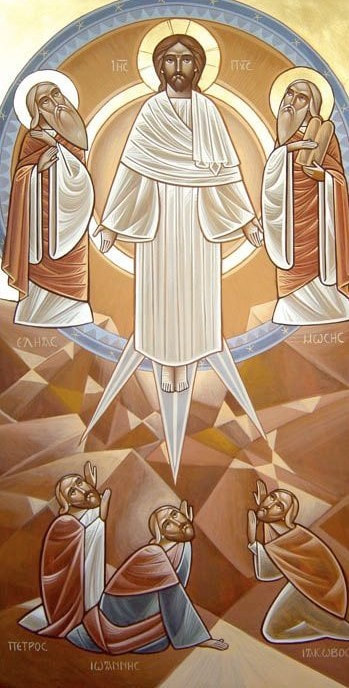
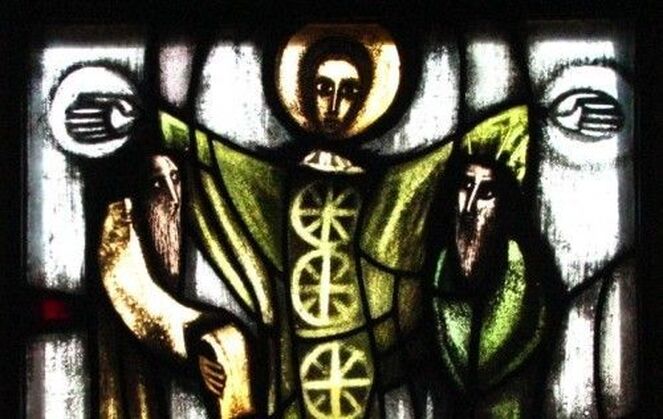

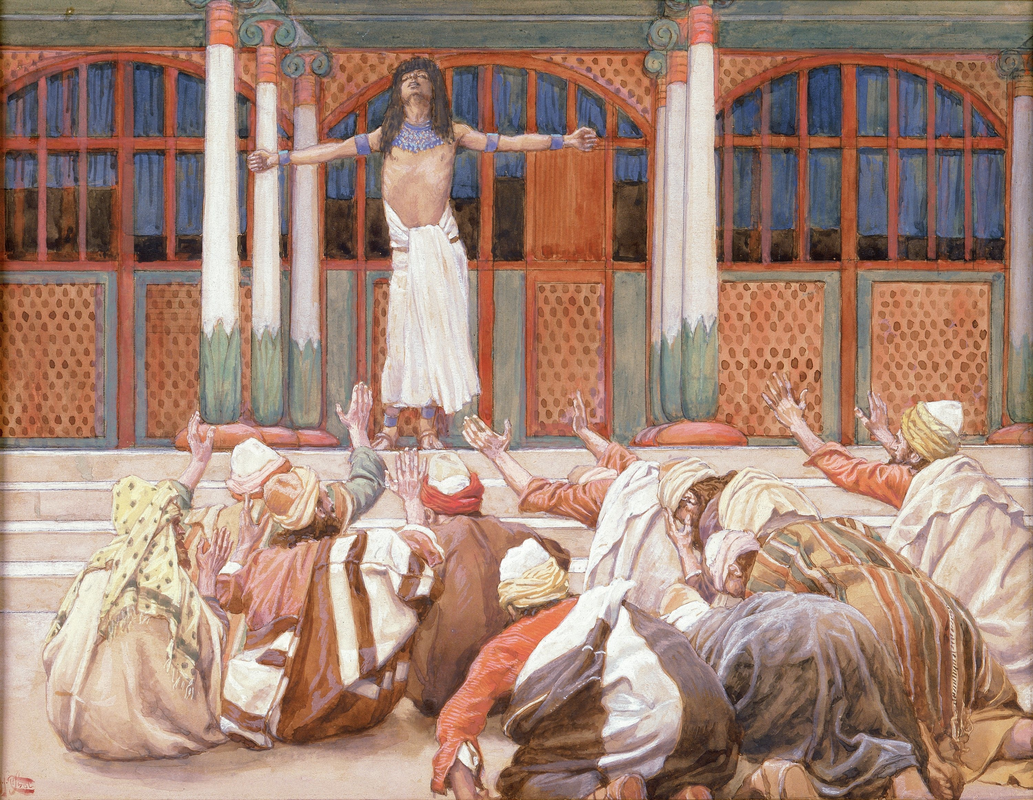
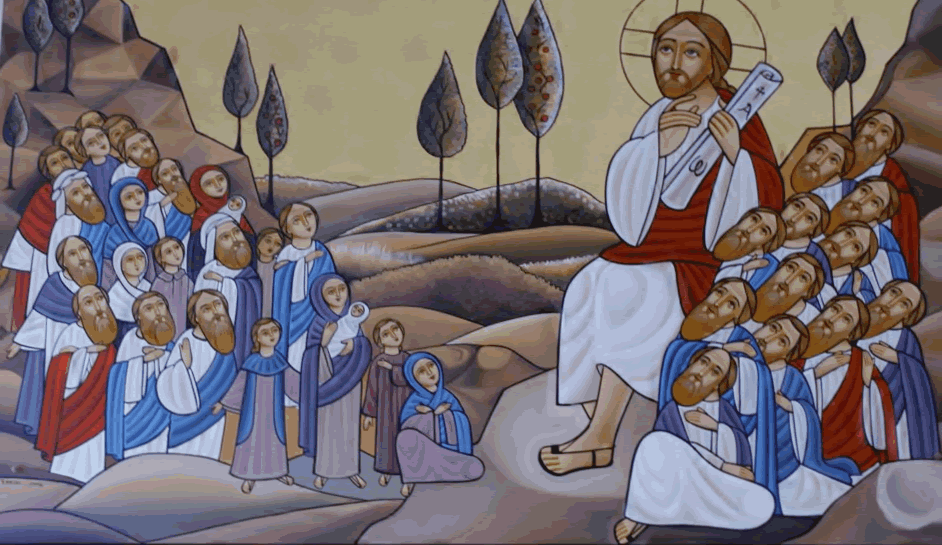
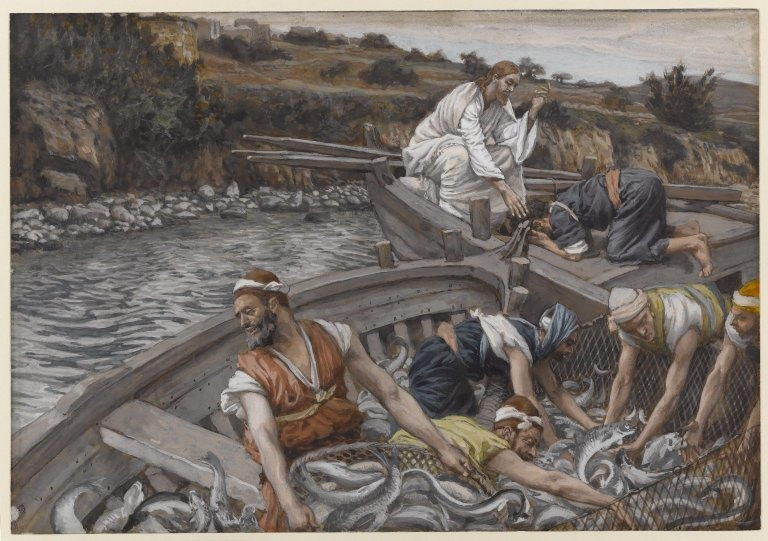
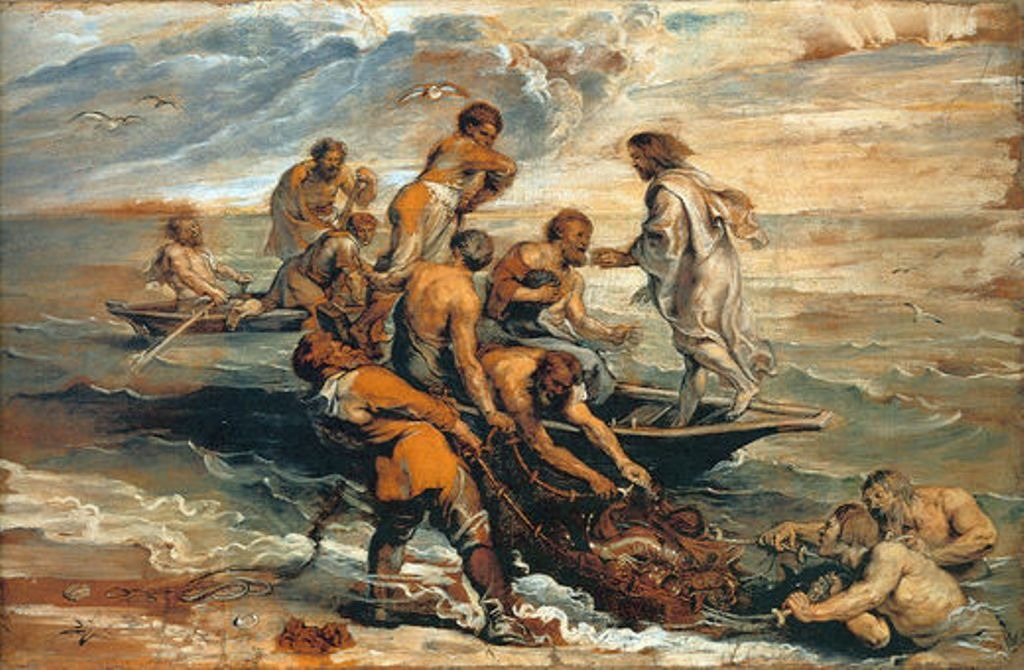
 RSS Feed
RSS Feed
